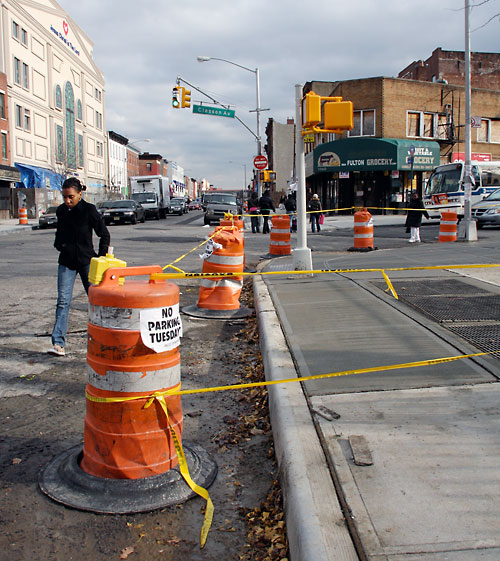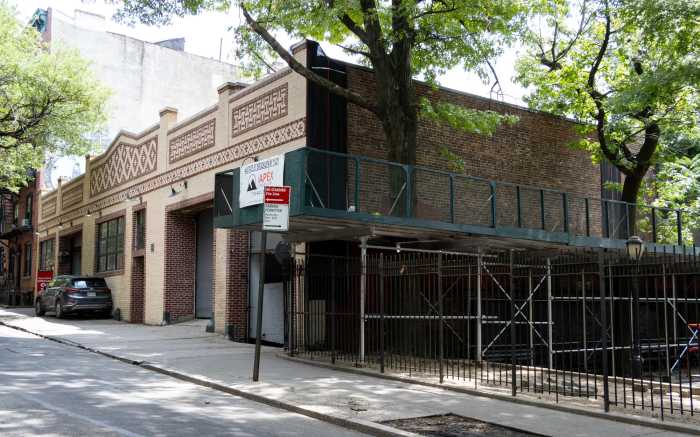The worst may be over for merchants along Fulton Street in Clinton Hill after suffering through years of roadwork that turned the commercial corridor into a retail graveyard.
City officials said this week that workers are almost done with a construction project that is almost a full year behind schedule.
“It’s horrible. There is no business, absolutely no business. With the street being torn up, there’s nowhere to park,” said the owner of a hair salon who asked to remain anonymous. “Hopefully, fixing everything up will help us in the end, but they’ve been doing this for two and a half years.”
The Department of Design and Construction started installing new water mains, sewers, traffic signals and streetlights between Clinton and Bedford avenues in July 2006. The $8.5-million project was supposed to be finished by the end of 2007, but the city is only now putting the finishing touches on the roadway.
“It’ll happen in the coming days … weather permitting,” a spokesman said.
The completion of sidewalks — which business owners say is just as vital as the return of parking spaces along the repaired roadway — will come next spring, the city said. If true, the project will have taken one and a half years longer than planned.
The project turned the formerly bustling street into a bumpy one-way urban equivalent of an off-road path.
“With all the construction, people can’t even walk down the street,” said Habbas Habbas, the owner of Fairway Variety Center at the corner of Washington Avenue.
The city apologized for interrupting normal life on Fulton Street.
“We’re very glad that the resumption of the normal pedestrian and traffic patterns are imminent for the businesses and customers of Fulton Street because they’ve endured a great deal,” said Matthew Monahan, a Department of Design and Construction deputy commissioner.
The sharp decrease in business faced by entrepreneurs is only one force that has shook up the local merchant base. Many landlords spiked commercial rents to capitalize on gentrification. The impact of higher rents and road work caused some teetering storeowners to go under.
“The ones that closed had financial hardship before, during and after [the construction],” said Dale Charles, the program manager for economic development at the Pratt Area Community Council.
The fallout has exposed divisions among the businesses. Charles and others have been pushing for the formation of business improvement district. But there has been a backlash against the BID, because stores would be forced pay monthly dues that go towards paying the salary of a BID director or buying new street lights and garbage cans.
A leaflet circulating on Fulton Street whipped up opposition to the BID for a meeting on Monday.
“If you don’t like your money being diverted into holiday lights and someone else’s handsome salary, if you don’t like being told what you can do in your own store, come to the organizing meeting to defeat the BID,” the flier said.
— with Zeke Faux

























